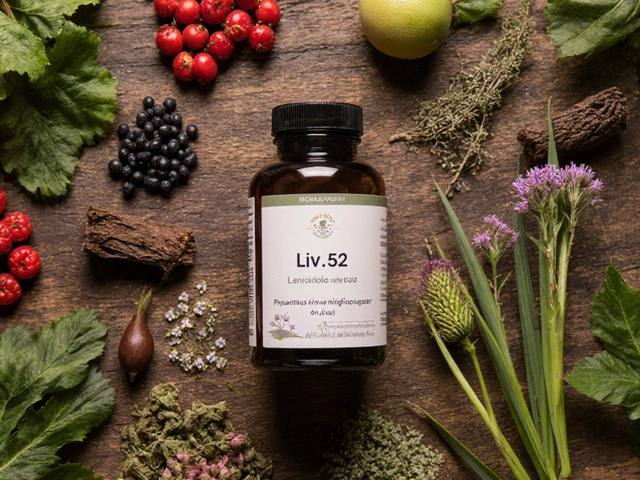You might be surprised to hear that nutrition plays a much bigger role in lung diseases like idiopathic pulmonary fibrosis (IPF) than most people think. While there’s no magical food that will cure IPF, what you eat every day can shape how you feel, how much energy you have, and even how you breathe. Doctors are learning that your lungs are closely tied to the rest of your health—skip meals, load up on unhealthy snacks, or get dehydrated, and your lungs can pay the price. But when you start fueling your body well, even small changes can help you cope better with daily life and may even slow down the progression of IPF. Think of it as giving your lungs a fighting chance, one forkful at a time.
Understanding IPF and Why Nutrition Matters
Idiopathic pulmonary fibrosis is a mouthful, isn’t it? But behind that big name is a disease that quietly scars and stiffens the lungs, making it harder and harder to breathe. IPF usually sneaks up on people after age 50. The exact trigger is still a mystery—hence “idiopathic”—but what’s clear is that those tough, fibrotic lungs are not as stretchy as they once were. It’s as if you swapped a soft sponge for an old, dried-up loofah. Every breath feels like a workout. So, what does your plate have to do with any of this?
Here’s the deal: living with IPF burns more calories than many people realize because your body is working overtime with every breath. At the same time, lots of folks with IPF notice their appetite slipping away, either from the illness itself or the meds meant to help. It’s a tricky puzzle. If you eat less but your body needs more fuel, you risk losing weight too quickly, getting weaker muscles (including those all-important breathing muscles), and even getting malnourished. A team of expert dietitians at Johns Hopkins found that being underweight can make IPF progress faster, and just small changes in weight can affect how people with IPF feel day to day. But here’s a twist: carrying too much extra weight can also make breathing tougher, and sometimes causes issues for people who need to use oxygen therapy. There’s a sweet spot when it comes to body weight, and nutrition can help you find it.
What goes into your body doesn’t only support your muscles. Vitamins and minerals help the immune system (so you don’t get knocked out by every cold going around), fight fatigue, and may even play a quiet role in slowing lung scarring. Some research, like a 2023 review in the American Journal of Respiratory and Critical Care Medicine, hints that antioxidants—those compounds in fruits and veggies—could help calm down the chronic inflammation happening in IPF. It’s not a slam-dunk cure, but the evidence is stacking up in favor of a colorful, balanced diet. So whether you feel like food is your friend or foe these days, learning a few nutrition hacks makes sense.
The Best Foods for People Living with IPF
Let’s cut through the noise: not every “superfood” is going to change your life, but some straightforward food choices really do make a difference. Here’s what science and real-life experience agree is worth reaching for in your kitchen:
- Fruits and Vegetables: Aim for a rainbow on your plate. Berries, leafy greens, oranges, carrots, and bell peppers pack a punch of antioxidants and vitamins like C, E, and beta-carotene. These support your immune system, help heal tissues, and may quiet some of the persistent inflammation in your lungs.
- Whole Grains: Trade white bread or sugary cereal for oats, brown rice, or whole-wheat pasta. Whole grains give you slow-burning energy, plus vitamins and minerals your body relies on to repair itself.
- Lean Proteins: Your body needs protein to maintain muscle, including those that help you breathe. Eggs, fish, poultry, beans, lentils, tofu, and Greek yogurt are all solid picks. If eating feels like a chore, try smoothies with protein powder or nut butter.
- Healthy Fats: Not all fats are the enemy. Omega-3s found in salmon, tuna, chia seeds, flaxseeds, and walnuts may have anti-inflammatory effects, which is a plus for IPF. Olive oil is another good fat to cook with or drizzle over vegetables.
- Dairy and Alternatives: Milk, yogurt, and cheese give you a dose of calcium and vitamin D, both critical for bone health—especially if you’re on steroid meds that can make bones fragile. Lactose-free or fortified plant milks work if dairy is tough on your stomach.
- Hydration: Here’s a fact that surprises people: dry airways make breathing harder, so keep a water bottle nearby and sip often. Herbal teas, clear broths, and even juicy fruits like watermelon count toward your daily fluid needs.
One tip that comes up again and again: eat smaller, more frequent meals. Large meals can push up against your diaphragm and make it harder to catch your breath. Nutritionists often suggest eating five or six small meals instead of three big ones. Sneak calories in where you can—top oatmeal with nut butter, sprinkle seeds on yogurt, or blend avocado into your smoothie. Remember, if you’ve lost weight without trying or struggle to keep food down, talk to your doctor or a registered dietitian for a tailored plan.

Foods and Habits That Can Make IPF Worse
So what should you be wary of if you’re dealing with IPF? Here are some lesser-known pitfalls (and a few surprises):
- Salt Overload: Too much sodium makes your body hold onto water, swelling up ankles and—even worse—causing fluid to build in your lungs. That’s a big deal for anyone already breathless. Stick to fresh foods and check labels for “low sodium” or “no added salt.” Even some breakfast cereals hide a salty secret, so it pays to scan packaging.
- Ultra-Processed Snacks: Packaged cookies, chips, fast food—all those convenient, shelf-stable treats—are often loaded with artificial ingredients, preservatives, and very little nutrition. They can promote inflammation, which is no friend to scarred lungs.
- Sugary Drinks and Sweets: It’s easy to give in to sweet cravings, especially if you’re tired or your appetite is low. But too much sugar can leave you feeling sluggish and may even mess with your immune system. If you want something sweet, reach for fruit or small amounts of dark chocolate instead.
- Heavy, Greasy Meals: Foods that are high in saturated fat or fried (think burgers, fried chicken, buttery pastries) can make you feel bloated. For people on oxygen, digestion slows down and heavy meals make you even more short of breath.
- Alcohol: Not only does booze dehydrate you, but it can also interact with common IPF medications and make them less effective. If you do drink, keep it minimal and check with your healthcare provider first.
On top of food choices, watch out for certain eating habits that can sneak up on you. Skipping meals because you’re “not hungry” can backfire and sap your body’s reserves, especially if you’re sick or flaring up. Not finishing your fluids because it means needing the bathroom more often? Your lungs still need moisture to work their best! And if you’re having any trouble swallowing, coughing while you eat, or losing weight quickly, get help sooner rather than later. Those signs mean your nutrition plan needs some tweaks.
Practical Nutrition Tips for Daily Life with IPF
Now for the part everyone wishes didn’t matter: the day-to-day hurdle of making healthy eating happen when you might be short of breath, tired, or just not hungry. These real-world solutions can help keep you on track when life gets messy:
- Keep Meals Simple: No shame in using pre-chopped veggies, frozen produce, or rotisserie chicken—anything that saves time and energy. Aim for “assembly” over cooking from scratch when you’re wiped out. Even mixing canned beans, spinach, and feta cheese can make a full meal.
- Batch Cook and Freeze: On days when you’re feeling okay, double up on recipes and freeze leftovers in single-serving packs. It’s like leaving a gift for your future self.
- Snack Smart: Keep grab-and-go snacks handy, like trail mix, string cheese, hummus with crackers, or fruit cups. This helps on days when meals seem like too much work.
- Use Supplements Carefully: Some people with IPF need extra vitamins or minerals, especially vitamin D or calcium, if taking steroids. But don’t just grab any supplement off the shelf—ask your doctor since some can mess with your meds or cause side effects if you take too much.
- Take Your Time Eating: Eat slowly and chew food well to avoid choking or coughing. Sit upright during and after meals, and take bites the size of a cherry tomato to make swallowing easier.
- Check In With Your Care Team: Bring up changes in your appetite, weight, or digestion at your doctor visits. Registered dietitians can get creative and help you adapt your diet as your needs change.
- Listen to Your Body: If big meals leave you gasping for air, smaller portions might become your new normal. If swallowing gets tough, softer foods or smoothies might give you more calories with less struggle.
- Make Mealtime Enjoyable: Play your favorite music, eat with a friend or family member, or use fun dishes. The more pleasant your meal, the more likely you are to eat enough.
- Don’t Be Afraid to Ask for Help: If prepping or shopping gets tough, online grocery delivery, local meal programs, or asking loved ones to pitch in can really lighten your load. Your lungs already have enough on their plate, so lean on support when you need it.
And here’s a little-known fact: researchers have found that even just mindful breathing before eating can help calm anxiety and make meals more comfortable for people with lung disease. Try pausing for a few slow, deep breaths before you pick up your fork—it can help get your body ready for food and make you feel more relaxed while eating.
Taking control of your nutrition isn’t about strict rules or complicated recipes. Instead, it’s about tiny, doable changes that build up over time and make daily living with IPF a little bit easier. And as experts keep discovering more about lung health and diet, expect these tips to get even more specific and tuned in. Treat your plate like a part of your toolbox—alongside your medications and treatments, good food can help you keep moving forward, one breath (and bite) at a time.








Posts Comments
farhiya jama June 11, 2025 AT 00:35
I just eat whatever’s in front of me anymore. If it’s frozen pizza at 2 a.m., so be it. My lungs don’t care. My stomach doesn’t care. We’re all just trying to survive.
Astro Service June 11, 2025 AT 14:24
USA makes the best food. All this fancy fruit and veg nonsense? That’s a globalist scam. Eat meat. Eat potatoes. Eat American. That’s how you get strong lungs.
DENIS GOLD June 13, 2025 AT 12:35
Oh wow, another ‘eat your greens’ lecture. Next they’ll tell me to meditate and hug a tree. My oxygen tank doesn’t care if my kale is organic. It just needs air.
Ifeoma Ezeokoli June 13, 2025 AT 15:36
My mama used to say, ‘Food is love when you can’t hug someone.’ I blend spinach, banana, almond butter, and a pinch of cinnamon - tastes like a warm hug in a glass. If you’re struggling, try it. No judgment. Just love.
Daniel Rod June 14, 2025 AT 00:55
It’s wild how something as simple as a smoothie can feel like a rebellion against a body that’s trying to shut down. 🍌💧 I used to think nutrition was for gym bros - now I see it as quiet resistance. Every sip, every bite - it’s a ‘not today, lungs.’
gina rodriguez June 14, 2025 AT 05:13
I started eating smaller meals and honestly? I can breathe better after dinner now. No more feeling like I swallowed a bowling ball. Small wins, right? 😊
Sue Barnes June 14, 2025 AT 19:43
Anyone who says diet helps IPF is lying to themselves. This is a death sentence wrapped in a Whole Foods bag. No amount of chia seeds will fix what your lungs have already lost.
jobin joshua June 14, 2025 AT 23:22
Bro, I eat biryani every day and still walk 2 miles. You don’t need to eat salad. You need to eat REAL food. Spices = medicine. 🌶️
Sachin Agnihotri June 15, 2025 AT 21:31
Hydration… hydration… hydration… I can’t stress this enough. I drink water every 20 minutes, even if I don’t feel like it. And yes, I have a log. I track it. I’m not weird - I’m smart.
Diana Askew June 16, 2025 AT 04:00
They don’t want you to know this - but the government and Big Pharma are hiding the real cure: sunlight and salt caves. They’re selling you kale so you don’t ask questions. I’ve been to a salt cave. I felt my lungs breathe again. 🤫
King Property June 17, 2025 AT 14:19
Everyone’s acting like this is new. I’ve been telling people for years: protein is everything. Your diaphragm is a muscle. Muscles need meat. Chicken breast. Eggs. Steak. Not some hippie smoothie with spirulina. You’re not a rabbit. Stop pretending you are.
Yash Hemrajani June 17, 2025 AT 21:48
Oh wow, ‘eat more veggies’ - genius. Next you’ll tell me to brush my teeth. Look, I get it. But if you’re already on oxygen and can’t walk to the fridge, telling me to ‘add more color to my plate’ is like telling a drowning man to do yoga.
Pawittar Singh June 18, 2025 AT 22:07
Hey, I know how hard this is. I lost 20 lbs in 6 months and felt like I was disappearing. Then I started adding peanut butter to everything - toast, oatmeal, even apples. Calories don’t judge. And neither do I. 💪❤️ You’re not alone.
Josh Evans June 20, 2025 AT 14:39
I just started meal prepping on Sundays. It’s not perfect, but now I have stuff in the fridge that doesn’t make me feel guilty. Small steps, y’all.
Allison Reed June 21, 2025 AT 00:26
Consistency matters more than perfection. Even one extra serving of vegetables a day adds up over time. Your body notices. Your lungs notice. Keep going.
Jacob Keil June 21, 2025 AT 02:03
what if… the real problem… is not what we eat… but the fact that we’re breathing… polluted air… all day… every day… and no one talks about it… the real enemy… is not our plate… it’s our sky…
Rosy Wilkens June 22, 2025 AT 04:28
These ‘diet tips’ are a distraction. The real issue is that IPF is caused by decades of environmental toxins and corporate negligence. They want you to feel guilty for not eating enough quinoa while they dump chemicals into your water supply. Wake up.
Andrea Jones June 24, 2025 AT 04:13
So I tried eating slowly like they said… and I actually enjoyed my food for the first time in years. Who knew? 🤷♀️
Justina Maynard June 25, 2025 AT 02:13
I used to think ‘nutrition’ was a buzzword for people who have too much free time. Then I got diagnosed. Now I call my meals ‘lungs’ and my snacks ‘oxygen upgrades.’ It sounds ridiculous - until you can’t catch your breath after climbing two stairs.
Write a comment